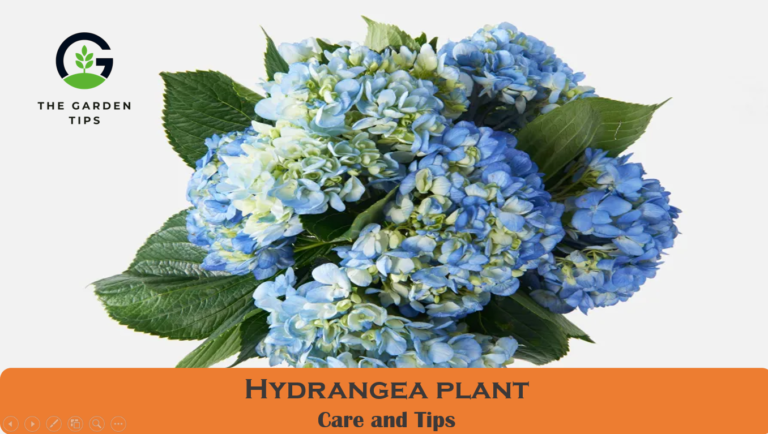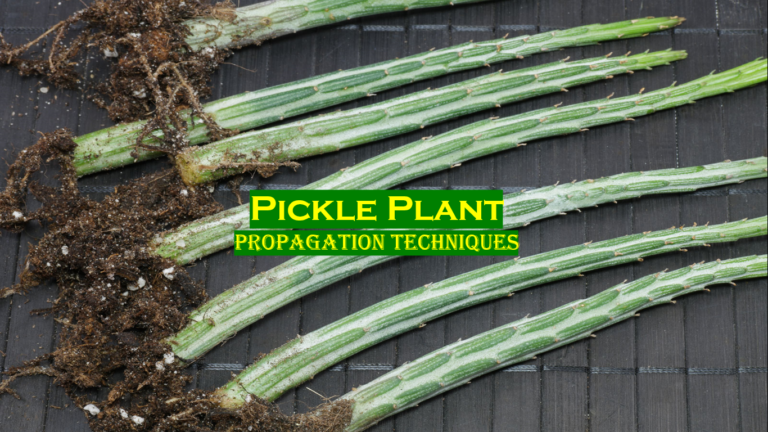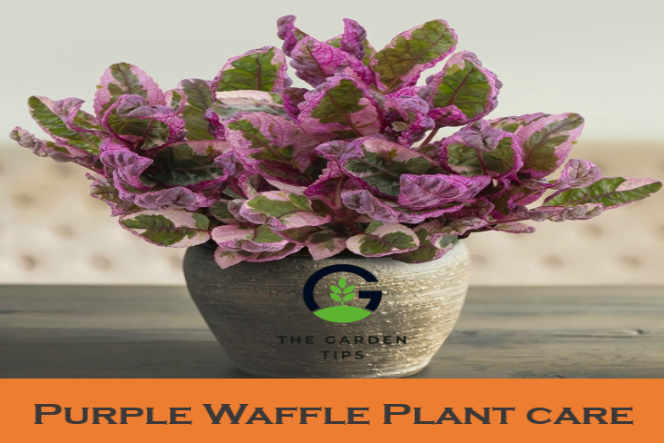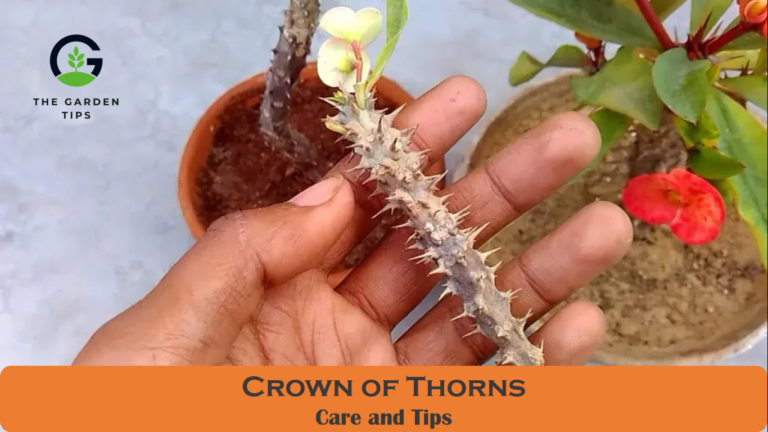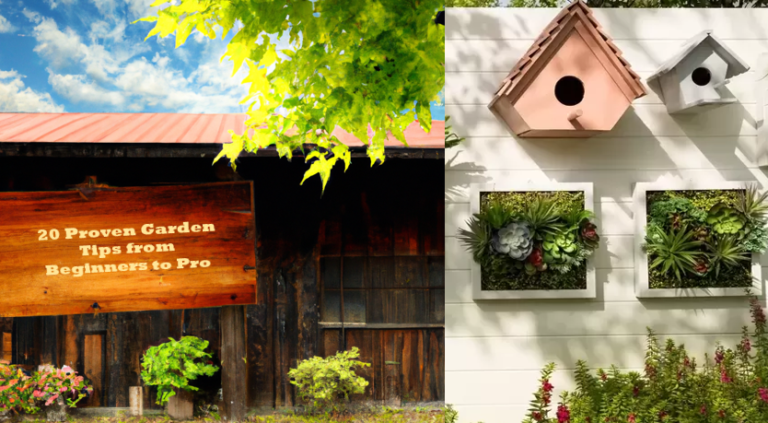Are you a plant lover who owns exotic angel plants? These beautiful and unique plants require special attention and care. One of the challenges that you may face as an exotic angel plant owner is dealing with pests. These pests can damage your plants, affect their growth, and even kill them. Fortunately, there are effective solutions to control and prevent exotic angel plant pests.
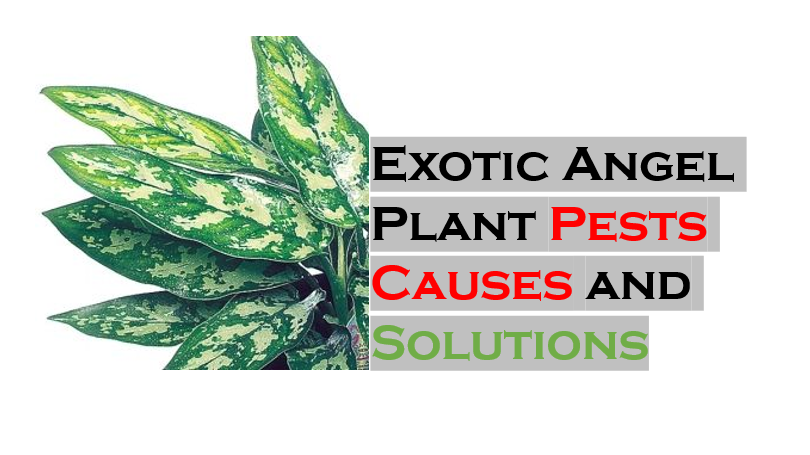
Exotic angel plant pests, including insects, mites, and fungi, can come in different forms. Some common pests that you may encounter include spider mites, mealybugs, aphids, and scale insects. These pests feed on the plant’s sap, weaken its structure, and transmit diseases. Additionally, they can attract other pests and lead to infestations that are difficult to control. As a result, it’s crucial to identify and treat exotic angel plant pests as soon as possible to avoid significant damage.
5 Common Pests of Exotic Angel Plant
Spider Mites
Spider mites are tiny pests that feed on the sap of your plant, causing damage to the leaves and foliage. Signs of a spider mite infestation include yellowing leaves, small webs, and a general decline in plant health.
Solution
To avoid spider mite infestations, it is important to maintain a humid environment for your plant and avoid excessive fertilization. If you suspect spider mites have taken hold, you can opt for natural remedies such as insecticidal soap or neem oil to control the affected areas. These remedies can help kill pests without harming your plant. Properly applying these treatments is crucial to avoid further harm to your plant. Follow instructions carefully and closely monitor your plant’s progress to ensure the infestation has been successfully eradicated.
Mealybugs
Mealybugs are small, white insects that feed on the sap of your plant. They can be found on your plant’s leaves, stems, and roots, causing damage and stunting its growth. Signs of a mealybug infestation include a sticky residue on the leaves and a general decline in plant health.
Solution
One of the most effective methods is regularly inspecting your plant for signs of infestation, such as cottony white masses on the leaves or stems. This can help you catch the problem early on and prevent it from spreading. In addition, you can use natural remedies like neem oil or insecticidal soap to tackle the problem head-on. These treatments can help control the mealybug population without causing harm to your precious plant. Stay vigilant and take action if you spot any signs of these pesky bugs.
Scale Insects
Scale insects are small, flat insects that attach themselves to the leaves and stem of your plant. They feed on the sap of your plant and can cause damage and growth stunting. Signs of a scale insect infestation include a sticky residue on the leaves and a general decline in plant health.
Solution
You can use natural remedies like insecticidal soap or neem oil to combat the infestation and stop the pests in their tracks. These treatments can effectively kill the scales without causing harm to your plant. Prevention is key, so check your plant regularly and take action if necessary to protect it from these pesky pests.
Aphids
Aphids are small insects that feed on the sap of your plant, causing damage and stunting its growth. Signs of an aphid infestation include distorted leaves, sticky residue on the leaves, and a general decline in plant health.
Solution
Maintaining a humid environment and avoiding excessive fertilization can help deter these pesky bugs. If you do notice signs of an aphid infestation, such as curled or yellowed leaves, don’t worry! Natural remedies like insecticidal soap or neem oil can effectively control the problem without harming your plant. It’s important to take action quickly to avoid the infestation spreading, so keep a close eye on your plant and act promptly if you suspect an aphid problem. With these precautions, you can keep your Exotic Angel plant healthy and happy.
Whiteflies
Whiteflies are small, white insects that feed on the sap of your plant, causing damage and stunting its growth. Signs of a whitefly infestation include yellowing leaves, small white insects flying around your plant, and a general decline in plant health.
Solution
Whiteflies are a common menace to Exotic Angel plants, but fear not! You can take steps to prevent these pesky bugs from taking over your plant. One of the most important things to do is to regularly check your plant for any signs of infestation, such as small white flies fluttering around or sticky residue on the leaves.
Catching the problem early can make a big difference in stopping the spread. If you do find an infestation, don’t worry! Natural remedies like insecticidal soap or neem oil can eliminate whiteflies without harming your plant. Remember, prevention is key, so stay vigilant and take action as soon as you spot any signs of these troublesome pests.
Exotic Angel Plant Common Questions
Looking for answers to your Common Questions on Exotic Angel Plant care? Exotic Angel Plant Common Questions refer to frequently asked questions related to the care, maintenance, and troubleshooting of exotic angel plants.
Why is my Exotic Angel plant leaves turning yellow?
Yellowing leaves in Exotic Angel plants can be caused by several factors, including overwatering, underwatering, lack of nutrients, or pests. If pests are the issue, treating them with insecticidal soap or neem oil can help control the problem and prevent further damage.
What pests are commonly found on Exotic Angel plants?
Exotic Angel plants are vulnerable to several common pests that can cause serious damage to the plant. These pests include spider mites, aphids, mealybugs, scale insects, and whiteflies. These tiny insects feed on the plant’s sap, causing leaves to turn yellow, growth to be stunted, and ultimately leading to plant death. It is crucial to regularly check for any signs of pest infestation to prevent the problem from worsening.
How can I tell if my Exotic Angel plant has a pest infestation?
Pests can be difficult to spot, especially if they hide on the leaves undersides. However, there are a few telltale signs that your Exotic Angel plant may have a pest problem. Look for yellowing leaves, distorted growth, webbing or small bumps on the plant, or visible pests on the leaves or stems. Early detection of pests is crucial to saving your plant from further damage.
How can I prevent pest infestations on my Exotic Angel plant?
Prevention is key when it comes to pest infestations on Exotic Angel plants. Regular inspection, proper lighting, and humidity levels are crucial. Overwatering and underwatering should be avoided to prevent the plant from becoming stressed, making it more susceptible to pests. Keeping the plant clean and dust-free can also prevent pests from settling on the leaves. By taking these preventative measures, you can help protect your Exotic Angel plant from harmful pests.
What can I do if my Exotic Angel plant has a pest infestation?
If you suspect your Exotic Angel plant has a pest infestation, don’t panic. There are several ways to control the problem. You can use insecticidal soap or neem oil to treat the plant, killing pests without harming the plant. Removing visible pests with a cotton swab or gently washing the plant with water can also help. In severe cases, using a chemical pesticide may be necessary, but reading and following instructions is important to avoid harming your plant carefully.
Are there any natural remedies for Exotic Angel plant pests?
There are several natural remedies for Exotic Angel plant pests that you can try before resorting to chemical pesticides. Using a solution of water and mild soap to wash the leaves can be effective, as well as using neem oil or essential oils such as peppermint or lavender. Introducing beneficial insects like ladybugs or praying mantises can also help control pest populations. Researching and following the proper guidelines for natural remedies to ensure they are effective and safe for your plant is important.
Why is my exotic angel plant dying?
Exotic Angel plants can die for several reasons, including overwatering, underwatering, pests, diseases, and poor lighting conditions. Overwatering can lead to root rot, while underwatering can cause the plant to dry out and eventually die.
Pests such as spider mites, mealybugs, and scale insects can cause damage to the plant, eventually leading to its death. Diseases like powdery mildew and bacterial leaf spot can also cause plant death. Poor lighting conditions, such as too much or too little light, can cause the plant to decline and eventually die. Identifying the underlying issue and taking appropriate action to address it to save the plant is important.
Final Words
Taking preventive measures and regularly inspecting your exotic angel plants can help prevent and treat pest infestations. It is important to remember to avoid over-fertilizing and to keep your plant’s environment humid. If you suspect an infestation, insecticidal soap or neem oil can help control and treat the affected areas. With proper care of exotic angel plants, your exotic angel plants can thrive and continue to bring beauty and vibrancy to your home.

